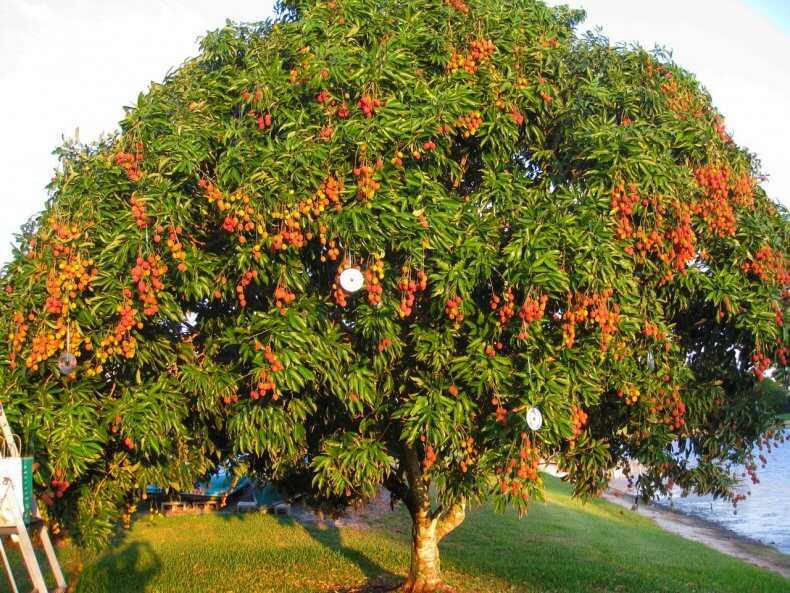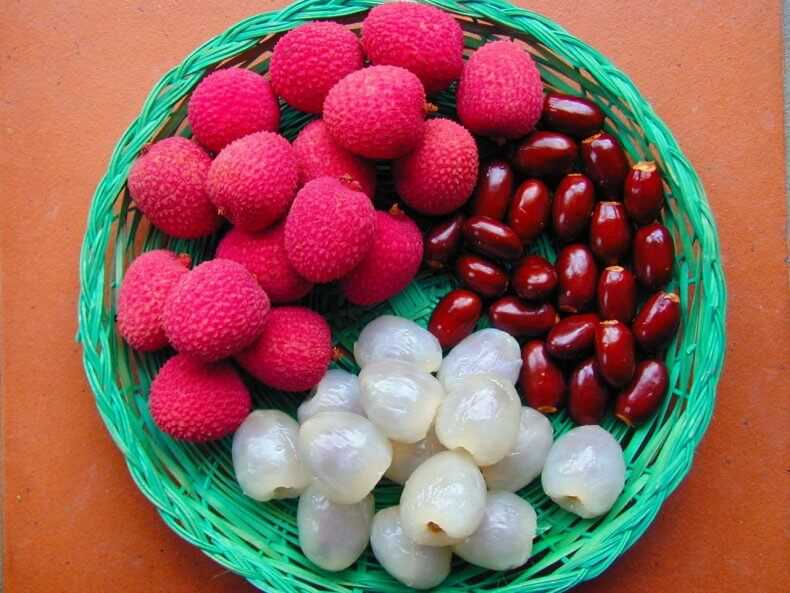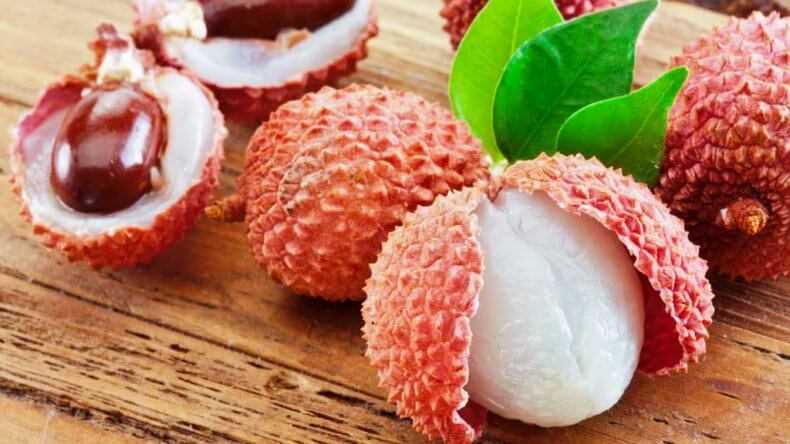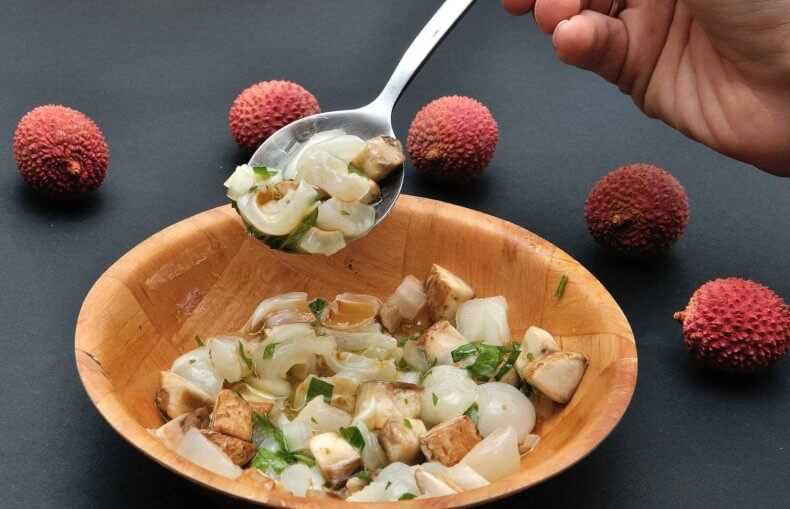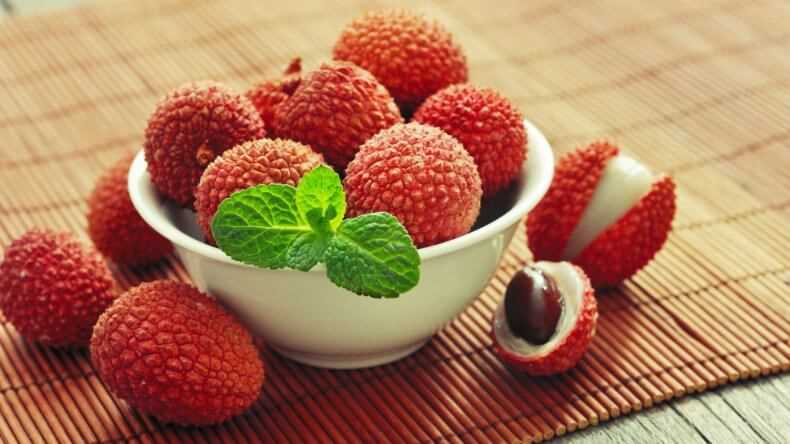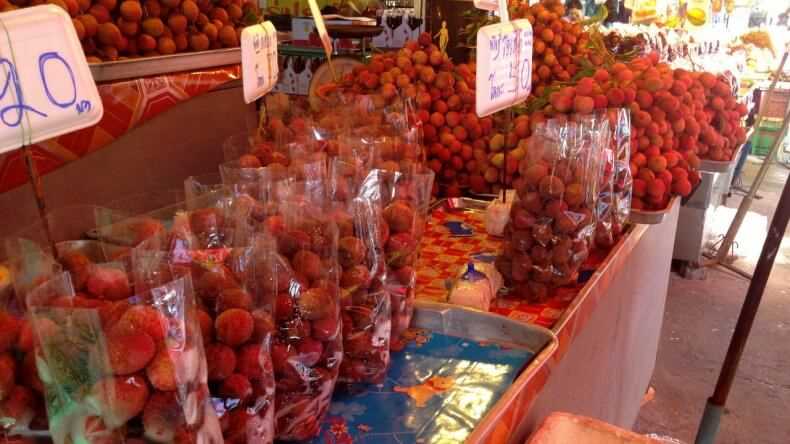Litchi fruit in Thailand is a harbinger of summer, with a ripening and harvesting period lasting from April to June. This exotic fruit has tonic properties and there’s probably no better way to refresh yourself in the heat than to eat it.
The litchi fruit is a great way to refresh yourself in the heat.
The litchi tree is grown as an agricultural crop in Thailand. It is an evergreen tree which can grow to 10 meters high in natural conditions. The crown is thick and spherical. The leaves are oblong, with a sharp tip. It is beautiful both during flowering (in January-February) and during fruiting. It can often be seen in the works of professional photographers in Southeast Asia.
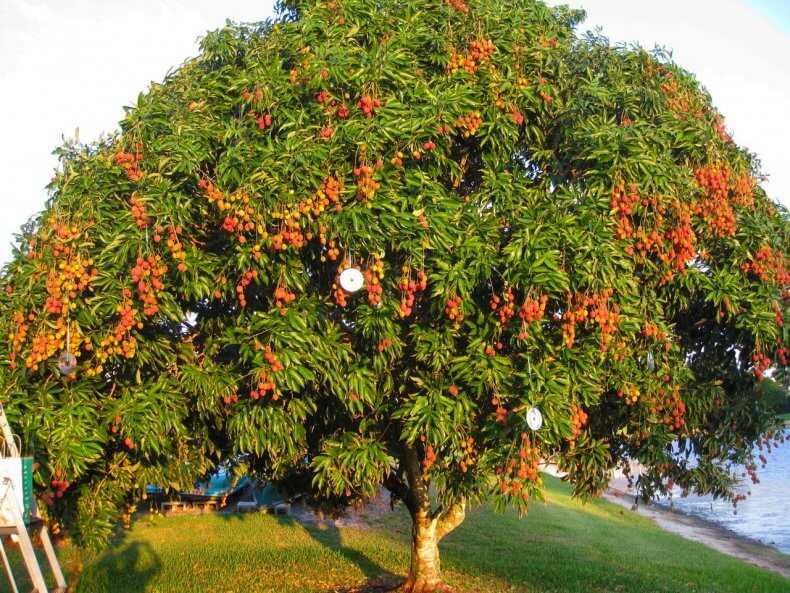
Fruits are mostly oval in shape, bright pink in color. They are small, from two to four centimeters in diameter. Because of this, lychees are often called Chinese plums. The skin is rough, ribbed and inedible. Flesh is white and translucent. It has a pit. The fruits are clustered in clusters.
Taste of lychee
The taste of lychee is difficult to describe. This tropical fruit has something of strawberry, grape, and apricot at the same time. There are those who smell a hint of raspberry. The sweetness is slightly astringent, but not cloying.
Ripening season
The litchi season in Thailand lasts from April to June. Harvested fruits are sold exclusively with twigs and leaves, otherwise they don’t store well. For a long time, litchi was imported from China, so the fruit was too expensive for the locals. Nowadays, the plant is cultivated. Many people wonder how much lychees cost in Thailand. During the season, it ranges from 40 baht in the northern provinces to 70 in the southern provinces, where there are more tourists.
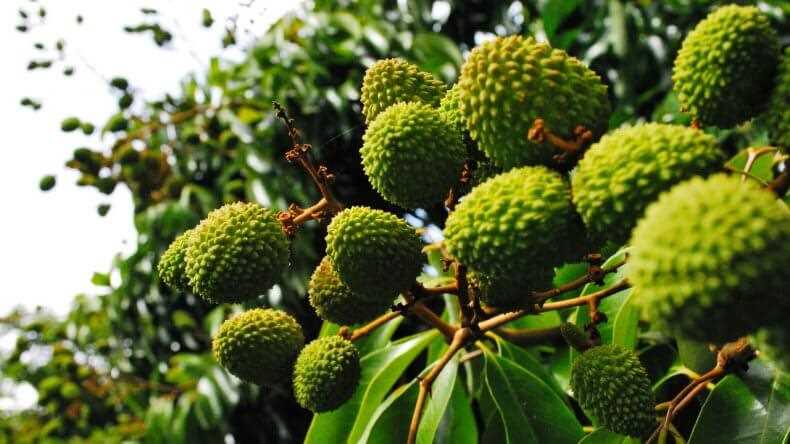
The unripe fruit is trivially green
How to peel
Tourists often ask the question, “How do you eat lychees?” The general rule of thumb is to be sure to wash it with water, preferably drinking bottled water. After that, cut the fruit along the entire length of the “equator”, being careful not to damage the flesh. After this, the skin can be removed in slices. Just don’t squeeze it too hard, because you risk getting sweet juices all over it.
Beneficial properties
The health properties of the litchi fruit are based on the presence of dietary fiber, antioxidants and vitamins in the fruit. Its calorie content is not high – only 66 calories per hundred grams of fruit, which is no more than in green grapes. It can safely eat even those who are afraid to gain extra pounds and lose a slender figure. In addition, the consumption of these fruits improves blood flow and in some ways contributes to increasing the skin’s resistance to sunburn.
It’s a good thing to eat grapes.
Oligonol – according to scientists, the presence of this powerful antioxidant in fruits is their main advantage. Thanks to it they have a broad antiviral action.
Ogonol is considered to be the main advantage of the fruit.
Vitamins
What are the vitamins in lychee? Like all citrus fruits, it’s high in vitamin C. A hundred grams of fruit contains at least 71.5 mg of it, slightly more than the daily norm recommended by doctors. In addition, the fruit is rich in B vitamins – thiamine and niacin (B1 and B3), as well as folic acid. This set improves the absorption of proteins, carbohydrates and fats.
Micronutrients
Lichi has many micronutrients. But potassium and copper are the most abundant. The first improves the nutrition of the heart muscle and the body’s overall metabolism. The second is a blood-forming micronutrient. Therefore, the consumption of lychee is recommended for people suffering from heart disease, as well as hypertension.
Fruit composition
The composition of the lychee fruit includes (per 100 grams of product):
- Water – 79.5 grams.
- Carbohydrates – 17 grams.
- Fiber (dietary fiber) – 1.6 grams.
- Proteins – 0.9 grams.
- Fat – 0,3 grams.
The total caloric value of one hundred grams of the product does not exceed 60 calories.
Can I get lychee pregnant
Many people wonder if you can have lychee fruit when you’re pregnant. Not only can it be, but it should be. Thanks to folic acid, it is important to eat lychee fruit already at the planning stage of pregnancy. And not only women, but also men.
Fruit rich in minerals and vitamins will help to cope with swelling, improve overall health and prevent uncontrolled weight gain. In addition, the consumption of bright and tasty berries will certainly improve your mood. And everything in general will have a beneficial effect on the health of not only the mother, but also the baby.
Fear of an allergic reaction is not necessary, cases of individual intolerance are extremely rare. The only rule is moderation. Even the healthiest food should not be consumed by kilograms.
The medicinal properties of lychee
The medicinal properties of the lychee fruit are used in Oriental medicine. For example, to treat the lungs, liver and kidneys. Local doctors recommend consuming this fruit for tuberculosis, asthma, bronchitis. It is good for reducing sugar levels in diabetes. As well as cholesterol. Here are a few other diseases in which lychee will help:
- Diseases of the gastrointestinal tract.
- Diseases of the cardiovascular system.
- Malorrhoea and anemia.
- Atherosclerosis.
How to choose
Lichi fruits are sold not only fresh, but also dried and canned. If you don’t know how to choose a lychee, it’s best to settle on a fresh product. Make sure that the fruit is dense to the touch, there are no soft and moldy sides. Unripe lychees have a greenish-pink hue. Fully ripe fruits come in all shades of pink; the longer it has been since the fruit was picked from the branch, the more brown appears in the coloring of its skins.
Read More:- Papaya fruit – health benefits and contraindications.
- Weather, beaches, prices in Phuket in summer – June, July, August.
- The weather, beaches, prices in Phuket in spring – in March, April, May.
- How to properly take fruit out of Thailand.
- The health benefits of Noni juice from Thailand.
- Blue tea from Thailand – why is it so popular.

